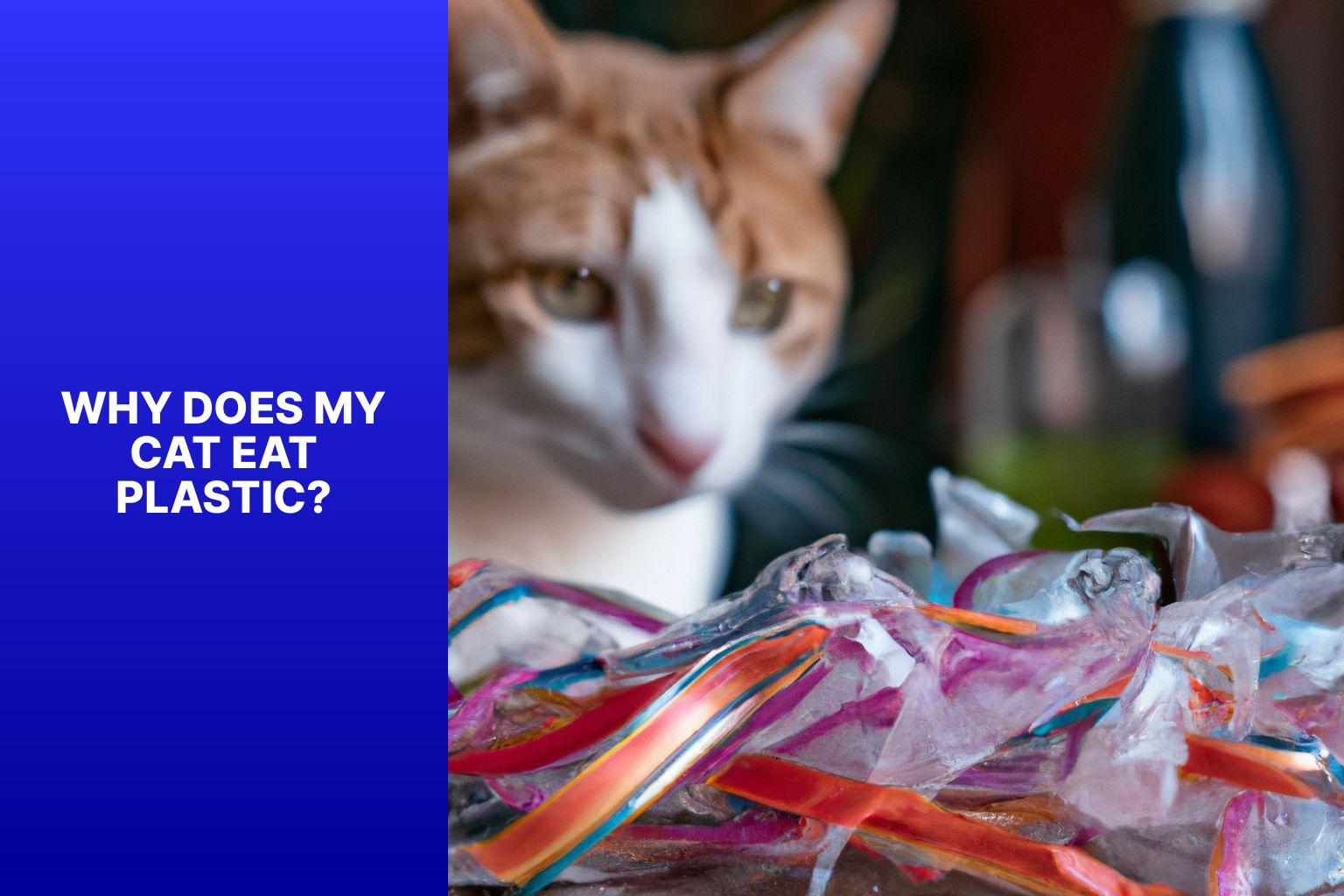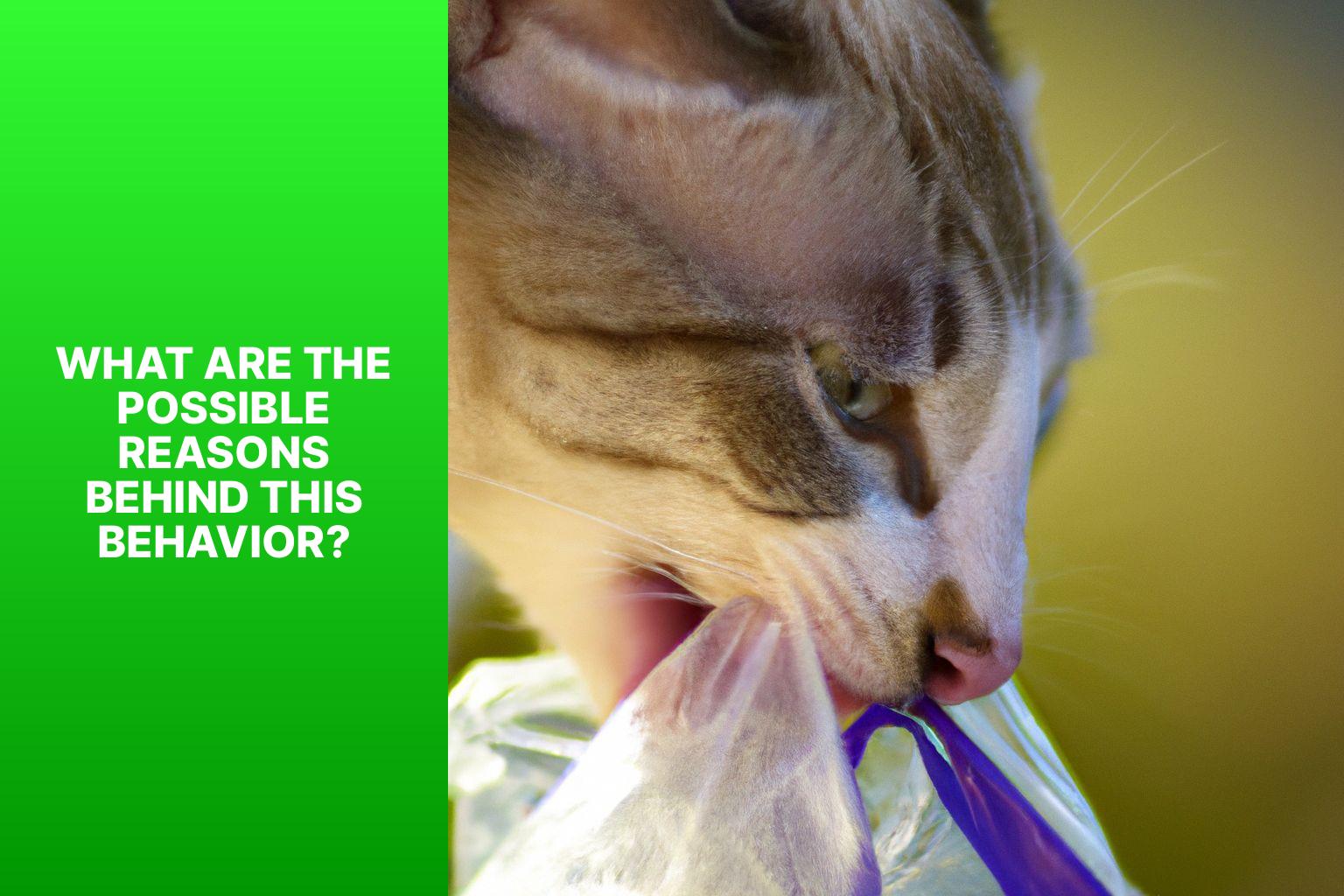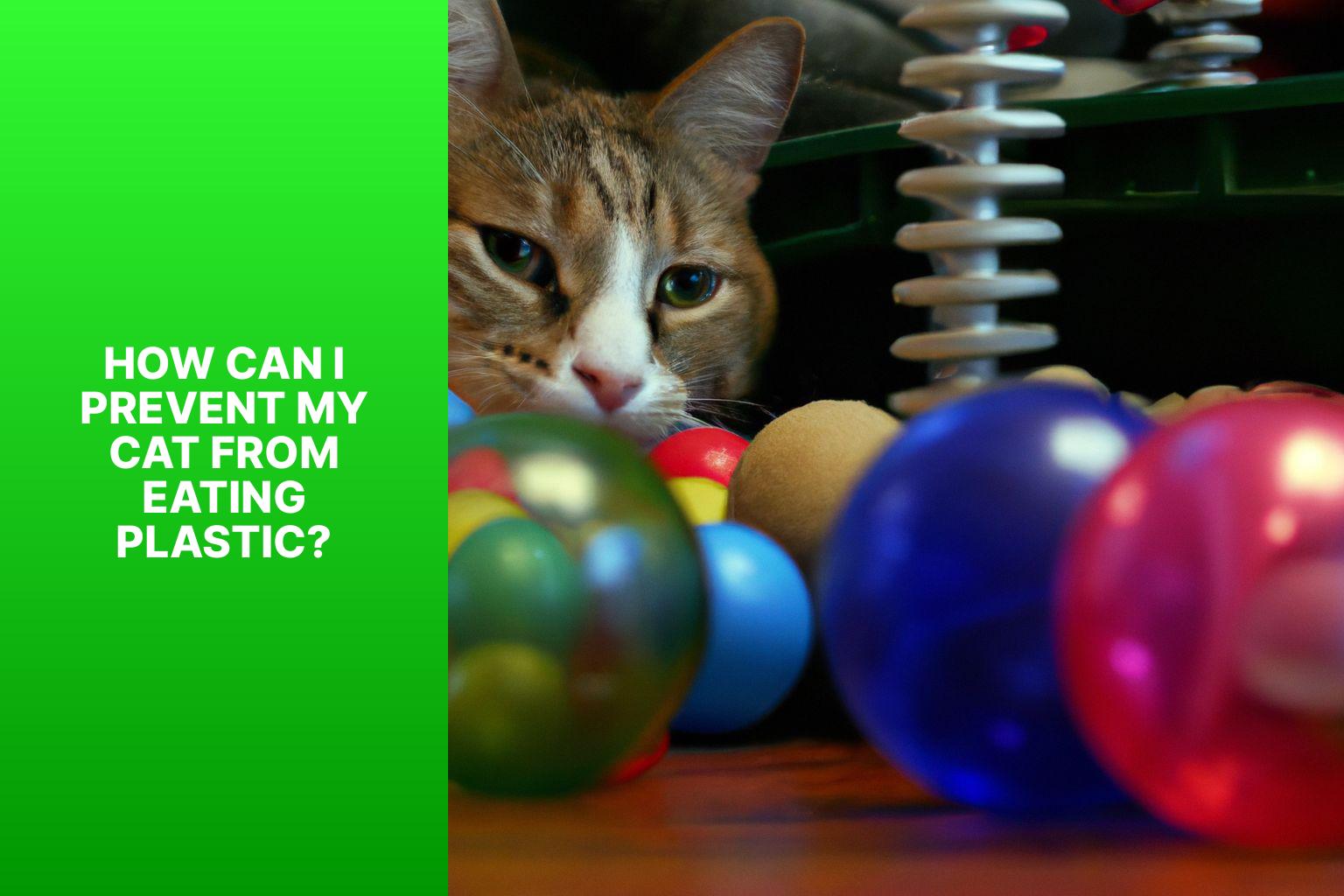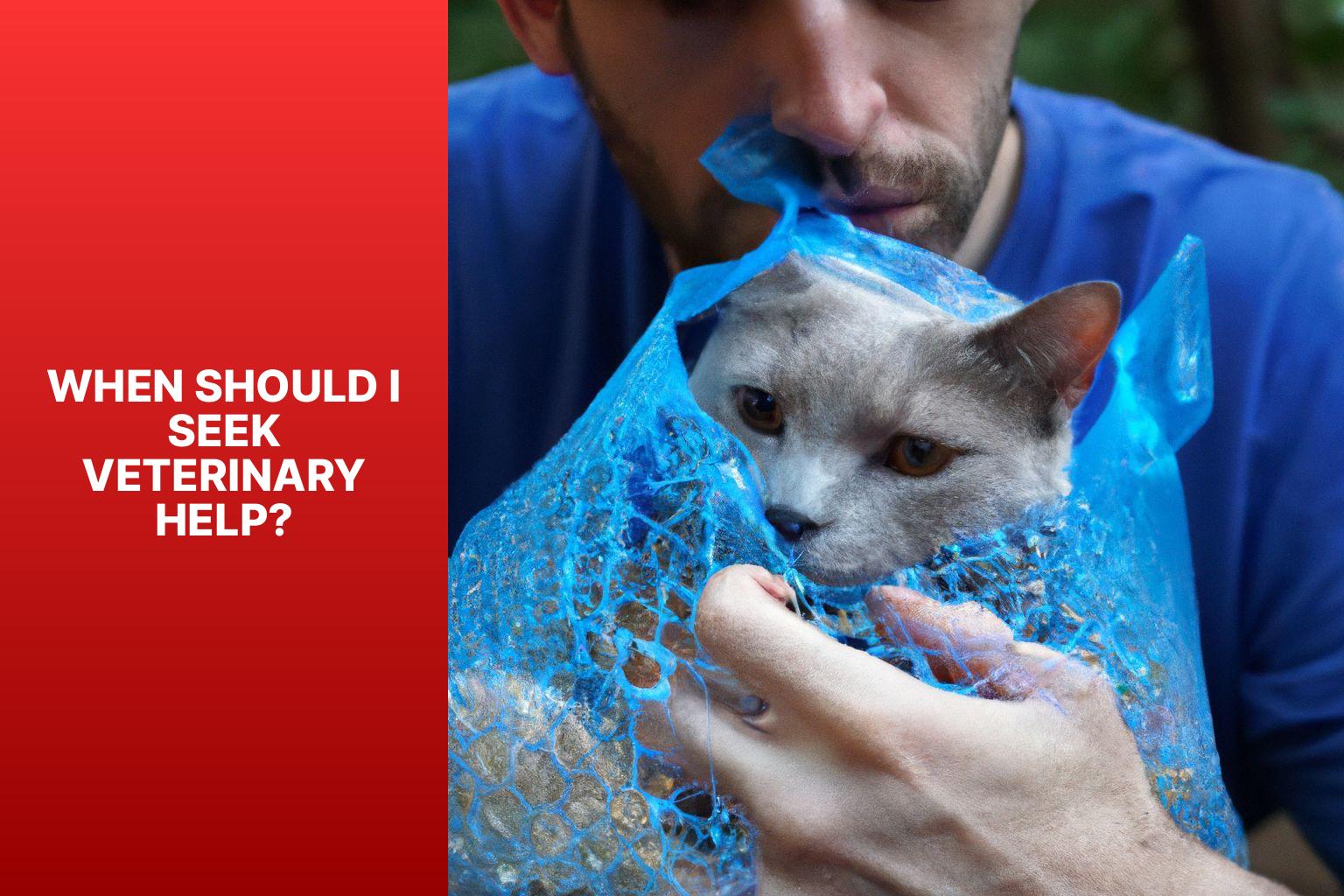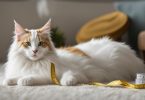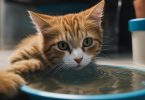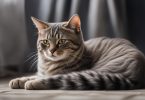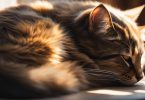Why does my cat eat plastic? This is a common concern among cat owners, and understanding the reasons behind this behavior is important for the health and well-being of your feline friend. While this behavior may seem strange, it is not uncommon in cats and can be caused by various factors.
Is this behavior normal for cats? It is not considered a normal behavior for cats to eat plastic, and it can indicate an underlying issue that needs to be addressed.
There are several possible reasons behind this behavior, including pica, boredom, nutritional deficiencies, stress or anxiety, and exploration and playfulness. Each of these factors can contribute to your cat’s attraction towards plastic objects.
It is crucial to be aware of the risks associated with cats eating plastic. Ingesting plastic can lead to serious health complications such as intestinal blockages and digestive issues. Therefore, taking steps to prevent your cat from eating plastic is vital.
To prevent your cat from engaging in this behavior, you can remove access to plastic, provide appropriate toys and enrichment to keep them mentally stimulated, ensure a balanced diet to meet their nutritional needs, and reduce stress and anxiety through various techniques.
If you notice that your cat is persistently eating plastic or displaying any concerning symptoms, it is important to seek veterinary help for a proper diagnosis and guidance on how to manage this behavior effectively.
Key takeaway:
- Is my cat eating plastic normal? Cats eating plastic may be a sign of abnormal behavior, such as pica or boredom.
- Possible reasons for this behavior include pica, boredom, nutritional deficiencies, stress, anxiety, and exploration/playfulness.
- Eating plastic can pose risks to cats, including intestinal blockages and toxicity from chemicals in the plastic.
Why Does My Cat Eat Plastic?
Photo Credits: Www.Catcornerblog.Com by Roy Thompson
Cats eat plastic for several reasons. Why does my cat eat plastic? There are a few possible explanations for this behavior. First, cats are naturally curious creatures and may be attracted to the texture and sound of plastic. They see it as a toy or something interesting to explore. Some cats may have pica, a condition where they compulsively eat non-food items, including small plastic pieces. Another reason why cats may eat plastic is to get attention from their owners, even if it’s negative attention. Cats may eat plastic as a coping mechanism or to self-soothe when they are stressed or anxious.
To address this behavior, there are a few suggestions you can try. First, store plastic items out of reach and keep them in cabinets or drawers where cats cannot access them easily. Second, provide alternative toys for your cat to play with and chew on. Interactive toys and puzzle feeders can help satisfy their chewing instincts and keep them mentally stimulated. If your cat’s plastic-eating behavior persists or concerns you, it’s important to consult with a veterinarian. A veterinarian can rule out any underlying medical issues and provide advice on how to address the behavior.
Remember, each cat is unique, so it’s important to understand why your specific cat may be eating plastic. By monitoring their behavior and seeking professional advice, you can ensure their well-being.
Is This Behavior Normal For Cats?
It is abnormal for cats to eat plastic. Is this behavior normal for cats? This behavior can be concerning. Cats are carnivores and should primarily eat meat. Healthy cats generally do not eat plastic. If your cat regularly eats plastic, take steps to address and prevent the behavior.
There are various reasons for this behavior, such as boredom, nutritional deficiencies, stress, or anxiety. Cats may also play with non-food items out of curiosity, including plastic. None of these reasons make eating plastic normal for cats.
To prevent your cat from eating plastic, remove access to plastic objects in their environment. This includes keeping plastic bags, wrappers, and other objects out of reach. Providing appropriate toys and enrichment activities can redirect your cat’s attention and prevent boredom. Ensuring a balanced diet is important too, as nutritional deficiencies may contribute to this behavior. If there is underlying stress or anxiety, consult a veterinarian for the best course of action.
Pro-tip: If your cat continues to eat plastic despite preventative measures, seek veterinary help to rule out any underlying medical conditions or behavioral disorders.
What Are The Possible Reasons Behind This Behavior?
Photo Credits: Www.Catcornerblog.Com by Harold Rodriguez
Curious about why your feline friend has a strange fascination with eating plastic? Let’s dive into the possible reasons behind this behavior. From pica to boredom, nutritional deficiencies to stress and anxiety, and even exploration and playfulness – we’ll explore the intriguing factors that might be driving your cat to nibble on plastic. Get ready to unravel the mysteries behind this quirky habit!
Pica
There are several possible reasons for this behavior:
- Stress or Anxiety: Cats may chew and eat plastic to cope with stress or anxiety.
- Boredom: Cats seek out non-food items when they lack mental stimulation and playtime.
- Nutritional Deficiencies: A poor diet without essential nutrients leads cats to look for alternative sources, including plastic.
- Exploration and Playfulness: Cats are naturally curious and may chew on objects, like plastic, to investigate.
To prevent cats from eating plastic, follow these tips:
- Remove Access to Plastic: Store plastic items securely or out of the cat’s reach.
- Provide Appropriate Toys and Enrichment: Give stimulating toys and playtime to redirect their chewing.
- Ensure a Balanced Diet: Use high-quality cat food that meets nutritional needs to reduce the urge to eat non-food items.
- Reduce Stress and Anxiety: Create a calm environment for the cat to alleviate underlying stressors.
Remember, if pica continues or is accompanied by concerning symptoms, seek veterinary help. A thorough examination can identify and address underlying reasons for this compulsive behavior.
Boredom
Boredom may cause cats to eat plastic. Cats are curious and intelligent animals. Without enough mental stimulation, cats may engage in unusual behaviors like chewing on non-food items. Here are some considerations for addressing boredom in cats:
- Provide environmental enrichment: Offer plenty of toys, scratching posts, and interactive play sessions.
- Rotate toys regularly: Introduce new toys and switch them out to keep your cat from getting bored.
- Use puzzle feeders: Use interactive toys or feeders that dispense treats to engage your cat in mentally stimulating activities.
- Establish scheduled playtime: Set a routine for interactive play sessions to give your cat regular stimulation and exercise.
Fact: Cats sleep for around 12 to 16 hours a day. They require mental and physical activities to prevent boredom.
Nutritional Deficiencies
When cats eat plastic, it may be due to nutritional deficiencies. Cats need specific nutrients for optimal health. If these nutrients are lacking, cats may exhibit unusual behaviors, like eating non-food items such as plastic.
– Nutritional void: A poor cat diet can lead to nutritional deficiencies.
– Healthier options: Providing well-balanced meals can help prevent nutritional deficiencies.
– Harmful pet food ingredients: Some pet foods may lack nutrition. It’s important to read labels and choose high-quality cat food.
– Published scientific articles: These articles provide valuable information about cat nutrition.
A true story about a cat named Whiskers reflects the impact of nutritional deficiencies. Whiskers constantly chewed on plastic and exhibited other unusual behaviors. After consulting with a veterinarian, it was discovered that Whiskers had a nutrient deficiency due to a poorly balanced diet. By switching to high-quality cat food and incorporating nutritional supplements, Whiskers’ behavior improved, and he stopped eating plastic.
Stress or Anxiety
Cats may eat plastic due to stress or anxiety. This behavior is often seen in cats experiencing emotional distress. Stress or anxiety can cause cats to develop abnormal habits, like eating non-food items such as plastic. To prevent this behavior, it’s important to address the underlying reasons for their stress or anxiety.
To reduce stress or anxiety in cats, create a calm and peaceful environment for them. Provide a comfortable and secure space, along with regular play and exercise, to alleviate their anxiety. Engage in interactive play with toys specifically designed for cats, which can redirect their attention away from plastic objects.
If the stress or anxiety persists, consult a veterinarian or a board-certified veterinary behaviorist. They can assess the cat’s behavior and provide appropriate guidance. In some cases, behavioral modifying drugs may be prescribed to alleviate the cat’s anxiety.
Understanding and addressing the factors that contribute to stress or anxiety in cats is crucial in preventing them from eating plastic or engaging in other repetitive behaviors. By providing a nurturing and stress-free environment, you can ensure the overall well-being of your cat.
Exploration and Playfulness
Exploration and playfulness are innate characteristics of cats that often manifest in their behavior, including their tendency to consume non-edible objects such as plastic.
Cats possess an inherent instinct to explore and engage in playful activities, which can sometimes drive them to chew on various items, including plastic.
It is essential to recognize that exploration and playfulness are normal behaviors for cats. It is crucial to understand that there are potential risks associated with their consumption of plastic or other non-food items. Consuming plastic can lead to choking hazards, intestinal blockages, and various other health problems.
To prevent your cat from ingesting plastic, it is advisable to provide them with suitable toys and opportunities for mental and physical enrichment. Toys that stimulate their hunting instincts, such as interactive toys or puzzle feeders, can redirect their playful behavior. Offering a wide variety of toys and regularly rotating them can help keep your cat entertained and ward off boredom.
Maintaining a well-balanced diet is also vital in addressing this behavior. A cat’s diet plays a significant role in their inclination to chew on non-food items. It is highly recommended to consult with a veterinarian to identify healthier food options and eliminate potentially harmful ingredients found in certain pet foods.
In some instances, a cat’s inclination towards exploration and playfulness may be indicative of underlying stress or anxiety. It is important to identify and address the root causes of these emotions. Creating a calm and enriched environment, providing hiding spots, and using behavioral modification techniques with the guidance of a veterinarian can assist in reducing stress and anxiety in cats.
If your cat’s exploratory and playful behavior intensifies and develops into compulsive or repetitive behaviors, seeking veterinary assistance is crucial. A veterinary behaviorist, such as Lisa Radosta, possesses the professional expertise to offer guidance and support in such cases.
Pro-tip: Ensure you supervise your cat during playtime and keep any potential plastic objects out of their reach. Regularly inspect your home for small plastic items that may tempt your inquisitive feline companion.
What Are The Risks Of Cats Eating Plastic?
Cats eating plastic can pose health risks. What are the risks of cats eating plastic? Swallowing plastic can cause gastrointestinal blockages, leading to abdominal pain, vomiting, and constipation. These blockages can be life-threatening and require prompt veterinary attention. Plastic may also contain toxic chemicals like phthalates and BPA, which can disrupt hormone balance and cause long-term health problems. Chewing on plastic can result in oral injuries, including cuts and choking hazards. Repeated ingestion of plastic can interfere with nutrient absorption, leading to malnutrition, weight loss, and poor health. To prevent these risks, keep plastic objects out of a cat’s reach, especially small items like packaging, bags, and toys. Provide appropriate chew toys and regular dental care to redirect their chewing behavior. If you suspect your cat has eaten plastic or is showing signs of distress, consult a veterinarian immediately for prompt medical attention and ensure your cat’s well-being.
How Can I Prevent My Cat From Eating Plastic?
Photo Credits: Www.Catcornerblog.Com by Ronald Hall
Curbing your feline friend’s peculiar plastic-eating habit might seem like a puzzling challenge, but fear not! In this section, we’ll dig into actionable tips to help you prevent your cat from munching on plastic. From removing their access to plastic to providing stimulating toys and nourishing diets, we’ve got you covered. We’ll explore how reducing stress and anxiety can also play a key role in deterring this curious behavior. Get ready to bid farewell to plastic snacking adventures!
Remove Access to Plastic
To prevent cats from eating plastic, remove access to plastic objects within their reach. Cats are naturally curious and may be attracted to the texture or scent of plastic, but it can be harmful if ingested. Here are the steps you can take:
1. Store plastic items securely: Keep plastic bags, packaging materials, and other plastic objects in closed cabinets or drawers that are out of your cat’s reach.
2. Use alternative storage options: Replace plastic food storage containers with safer materials like glass or stainless steel.
3. Clean up any plastic debris: Regularly check your home for small plastic pieces or items that may have fallen on the floor. Cats may mistake these objects as toys or food.
4. Provide appropriate toys and enrichment: Give your cat interactive toys, scratching posts, and puzzle feeders to keep them distracted from plastic objects.
5. Supervise during playtime: If your cat is interested in chewing or playing with plastic, closely supervise their playtime and redirect their attention to suitable toys.
Remember, removing access to plastic is just one step in preventing this behavior. It’s important to address the underlying reasons why your cat is eating plastic. If the behavior persists or becomes compulsive, consult a veterinarian or veterinary behaviorist for further guidance.
Pro-tip: Use cat-proof bins or containers for your household trash to prevent your cat from accidentally ingesting plastic.
Provide Appropriate Toys and Enrichment
Providing appropriate toys and enrichment is crucial in preventing cats from chewing on plastic. Here are some suggestions to naturally incorporate the keywords “provide appropriate toys and enrichment” while discussing ways to keep your cat engaged and entertained:
– Take the time to invest in interactive toys that not only entertain but also stimulate your cat’s natural hunting instincts. These toys can be filled with treats or have teasers attached to them, ensuring that your cat stays engaged and satisfied.
– Make mealtimes more enjoyable and mentally stimulating for your cat by using puzzle feeders. These toys encourage your cat to work for their food, providing both mental and physical stimulation.
– It’s important to have multiple cat trees and scratching posts placed in different areas of your home. This allows your cat to fulfill their natural instinct to climb, scratch, and explore their surroundings.
– To keep your cat interested, regularly rotate their toys. Introduce new toys occasionally to provide variety and prevent boredom.
– Dedicate regular play sessions with your cat, using interactive toys such as feathers or laser pointers. These play sessions help burn off excess energy and strengthen the bond between you and your cat.
– Create vertical spaces for your cat to climb and perch on, such as shelves, window perches, or cat condos. Cats love observing their surroundings from above, and providing these vertical spaces can keep them entertained and engaged.
By incorporating the keywords “provide appropriate toys and enrichment,” you can redirect your cat’s chewing behavior away from plastic and towards more suitable options. Remember to always supervise your cat during playtime and choose safe and durable toys for their well-being.
Ensure a Balanced Diet
To ensure a balanced diet for your cat, consider the following factors:
1. Choose high-quality cat food: Look for brands that provide complete and balanced nutrition for cats. These foods meet all of your cat’s nutritional needs.
2. Read the ingredients list: Avoid cat foods with fillers, artificial additives, and harmful ingredients. Opt for products that use high-quality protein sources and include essential vitamins and minerals.
3. Consider your cat’s age and health: Different life stages and health conditions require specific dietary needs. Consult with your veterinarian to determine the best food for your cat based on their age and health concerns.
4. Provide a variety of foods: Cats benefit from a diverse diet that includes wet and dry food. This ensures they receive a range of nutrients and prevents meal boredom.
5. Monitor portion sizes: Overfeeding can lead to obesity and other health problems. Follow the feeding guidelines provided by the cat food manufacturer and adjust based on your cat’s needs.
6. Offer fresh water: Along with a balanced diet, ensure your cat has access to clean and fresh water at all times. This is essential for hydration and overall well-being.
One cat owner, Jane, struggled to find the right food for her cat. After consulting with her veterinarian, she switched to a high-quality, balanced diet recommended specifically for her cat’s age and health needs. Not only did her cat’s overall health improve, but she also noticed a significant increase in her cat’s energy levels and coat quality. By ensuring a balanced diet, Jane provided her cat with proper nutrition for a happy and healthy life.
Reduce Stress and Anxiety
Cats eat plastic due to stress and anxiety. This is abnormal for cats and needs addressing. To reduce stress and anxiety in cats, use these strategies:
- Create a calm and safe environment with hiding spots, vertical spaces, and quiet areas.
- Regular play and exercise help alleviate stress. Use interactive toys and puzzle feeders.
- Maintain a consistent routine for feeding, playtime, and social interaction.
- Use pheromone products like Feliway to reduce stress. Spray or use diffusers.
- If stress persists, consult a veterinarian for guidance, behavioral techniques, or medication.
When Should I Seek Veterinary Help?
Photo Credits: Www.Catcornerblog.Com by Joseph Taylor
When Should I Seek Veterinary Help?
Seek veterinary help for your cat in specific situations. Consider seeking veterinary assistance if your cat has severe injuries or trauma. If your cat has been in an accident or suffered a severe injury, seek veterinary help immediately. If your cat is experiencing difficulty breathing, such as wheezing or gasping for air, it may have a respiratory problem that requires prompt attention from a veterinarian. Continuous vomiting or persistent diarrhea in your cat could indicate an underlying health issue that needs veterinary examination. If your cat has ingested toxic substances, like certain plants, cleaning products, or medications, seek veterinary help right away to prevent severe complications. Sudden behavior changes such as extreme aggression, lethargy, constant hiding, or disorientation in your cat could indicate an underlying health problem that requires professional evaluation.
If you notice any of these signs or have concerns about your cat’s health, consult with a veterinarian. They will provide a proper diagnosis and recommend appropriate treatment for your cat’s well-being.
Some Facts about “Why Does My Cat Eat Plastic”:
- ✅ Cats have a natural instinct to chew, but chewing on plastic can be dangerous as it can block their GI tract and require surgery.
- ✅ Some cats have a compulsion to eat plastic, known as pica, which can be caused by various conditions such as gut disease, feline leukemia virus (FeLV), feline immunodeficiency virus (FIV), anemia, obsessive-compulsive disorder, dental disease, and hyperthyroidism.
- ✅ Plastic pica, the behavior of eating or chewing on non-food items, is common in cats, and it can be a sign of an underlying health problem such as anemia, dental disease, or hyperthyroidism.
- ✅ Cats may chew on plastic due to a poor diet, seeking out nutrition that is lacking in their food. Stress can also lead cats to chew on plastic as a way to soothe themselves.
- ✅ Providing appropriate alternatives, such as chew toys, and monitoring a cat’s behavior closely can help prevent any potential hazards associated with plastic chewing.
